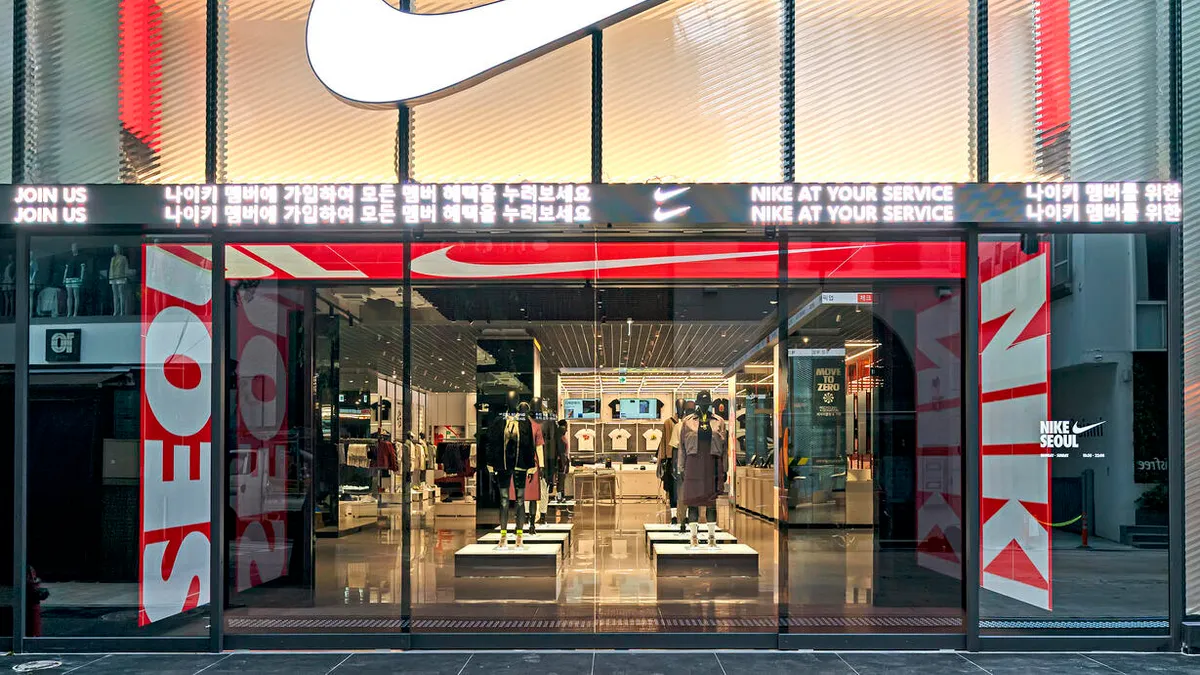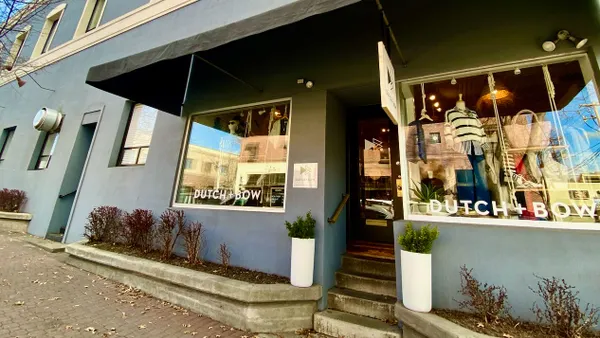Dive Brief:
- Activist investment platform Tulipshare rebuked Nike in an open letter this week for “willingly ignoring” shareholders’ concerns over potential abuses in the retailer’s supply chain, including forced labor.
- “[W]e are concerned by the lack of transparency relating to Nike’s disclosures on whether the Company is on track to meet certain targets,” Tulipshare said in the letter. “We are also gravely concerned that Nike lacks an adequate remediation process for aggrieved supply chain workers, which could lead to human rights violations, such as wage theft.”
- The letter also pointed to “legal, financial, and reputational risk” to Nike of not doing more to root out abuses in its supply chain. Nike did not respond to Supply Chain Dive’s request for comment.
Dive Insight:
Nike is one of the largest apparel sellers in the world. The company made $46.7 billion in revenue in fiscal 2022, and has one of the most valuable brands and companies in the fashion industry.
As such, it commands sizable leverage in production markets and has a vast supply chain that includes well over 1 million workers.
Last year, the company reported 120 footwear suppliers making finished goods for Nike across 11 countries, with most of that production in Vietnam (44%), Indonesia (30%) and China (20%).
Another 279 factories, in 33 counties, made finished apparel for Nike, with most of those facilities in Vietnam (26%), China (20%) and Cambodia (16%). The company has another 139 “strategic” Tier 2 suppliers, and does not currently make disclosures around its third tier and beyond.
The Tulipshare letter highlighted Nike’s score on KnowTheChain, which provides company benchmarks around forced labor. Nike most recently scored 62 out of 100 possible points, making it the sixth highest-ranked apparel and footwear business among 37 peer companies. The brand drew its lowest scores for purchasing practices (48 out of 100), worker voice (38) and remediation (58).
“Nike takes seriously and fully supports national and international efforts to end forced labor, human trafficking and modern slavery,” the retailer previously said in a statement condemning the human rights violations.
Meanwhile, a group of 20 unions along with labor organizations filed a complaint against Nike last month with the Organisation for Economic Co-operation and Development over treatment of workers in the brand’s supply chain.
The group said in a fact sheet that workers in Nike’s supply chain “experienced layoffs and terminations, arbitrary pay cuts, unpaid wages for hours worked, and gender discrimination at an unprecedented scale” and alleged that the company contributed to negative conditions for garment workers without remedying them.
Multiple labor groups tied to the OECD complaint found that garment workers were still owed millions of dollars in wage claims going back to the early pandemic period in 2020, when brands, including Nike, canceled orders with suppliers en masse.
Claims for unpaid wages by workers in Nike’s supply chain in just the small sample of factories surveyed amounted to $9.3 million, according to the report from Asia Floor Wage Alliance and Global Labor Justice-International Labor Rights Forum.
The groups said in the report that “the unresolved claims show that the scope of wage losses can only be addressed by the fashion companies at the top of these supply chains.”
Tulipshare recommended that Nike include the American Bar Association’s Model Contract Clauses into its supplier contracts, which aims to create shared responsibility between buyers and suppliers for workers’ human rights. Tulipshare also recommended Nike work with unions and other organizations to improve freedom of association in its supply chains.
Forced labor in supply chains has come under increasing scrutiny. In the White House’s recently released trade agenda for 2023, the Biden administration called forced labor out as one of its main points of focus, along with securing other rights for domestic and international laborers.















